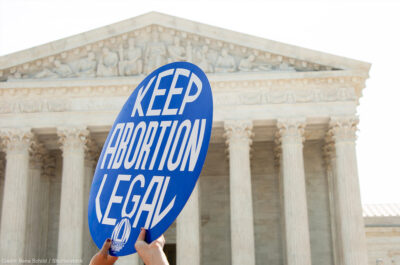
West Alabama Women’s Center v. Miller
What's at Stake
A federal appeals court struck down Alabama’s law prohibiting physicians from performing a medically proven method of abortion care that some women need.
Summary
The Eleventh Circuit Court of Appeals struck down an Alabama state law prohibiting physicians from providing dilation and evacuation (D&E), a medically proven method for performing abortions. This is the first federal appeals court decision addressing the constitutionality of a ban targeting the D&E procedure.
In the case brought by the ACLU on behalf of Drs. Yashica Robinson and Willie Parker, West Alabama Women’s Center v. Miller, the Eleventh Circuit Court of Appeals affirmed an order from the United States District Court for the Middle District of Alabama invalidating the ban. The appellate court decision followed oral arguments held before the Eleventh Circuit in May 2018. The state law challenged in the case made it a crime for physicians to provide D&E abortions. If Alabama had been permitted to enforce the ban, it would have eliminated abortion access in Alabama for hundreds of women each year.
Leading medical experts including the American College of Obstetricians and Gynecologists [CF1] oppose this type of abortion restriction. An evidence-based and non-partisan report from the National Academies of Sciences, Engineering, and Medicine described D&E as a “superior method” of abortion, finding that it is extremely safe with minimal complications.
This case originated with the ACLU’s challenge to three abortion restrictions, including the ban on the D&E procedure. The second law would have forced abortion clinics within 2,000 feet of a K-8 public school to close. This would have shut down the only abortion clinics in Huntsville and Tuscaloosa, leaving just three abortion providers in a state of nearly one million women of reproductive age. On October 28, 2016, the district court permanently blocked this law from taking effect, and that decision was not appealed. The third requirement singled out abortion patients for a medically unnecessary requirement, jeopardizing the confidentiality of their medical records. After the suit was filed, the Alabama Department of Public Health agreed to a settlement that would protect patient confidentiality.
Legal Documents
-
07/07/2016
First Supplemental Complaint -
07/07/2016
Memo in Support of Motion for TRO or PI -
07/14/2016
Consent Temporary Restraining Order -
10/28/2016
Order Enjoining Enforcement -
12/12/2018
Amicus Brief ACOG
Date Filed: 07/07/2016
Court: District Court (M.D. Ala.)
Affiliate: Alabama
Download DocumentDate Filed: 07/07/2016
Court: District Court (M.D. Ala.)
Affiliate: Alabama
Download DocumentDate Filed: 07/14/2016
Court: District Court (M.D. Ala.)
Affiliate: Alabama
Download DocumentDate Filed: 10/28/2016
Court: District Court (M.D. Ala.)
Affiliate: Alabama
Download DocumentDate Filed: 12/12/2018
Court: District Court (M.D. Ala.)
Affiliate: Alabama
Download DocumentPress Releases
Federal Court Strikes Down Alabama Ban on Abortion Method
Federal Judge Blocks Two Alabama Abortion Restrictions
